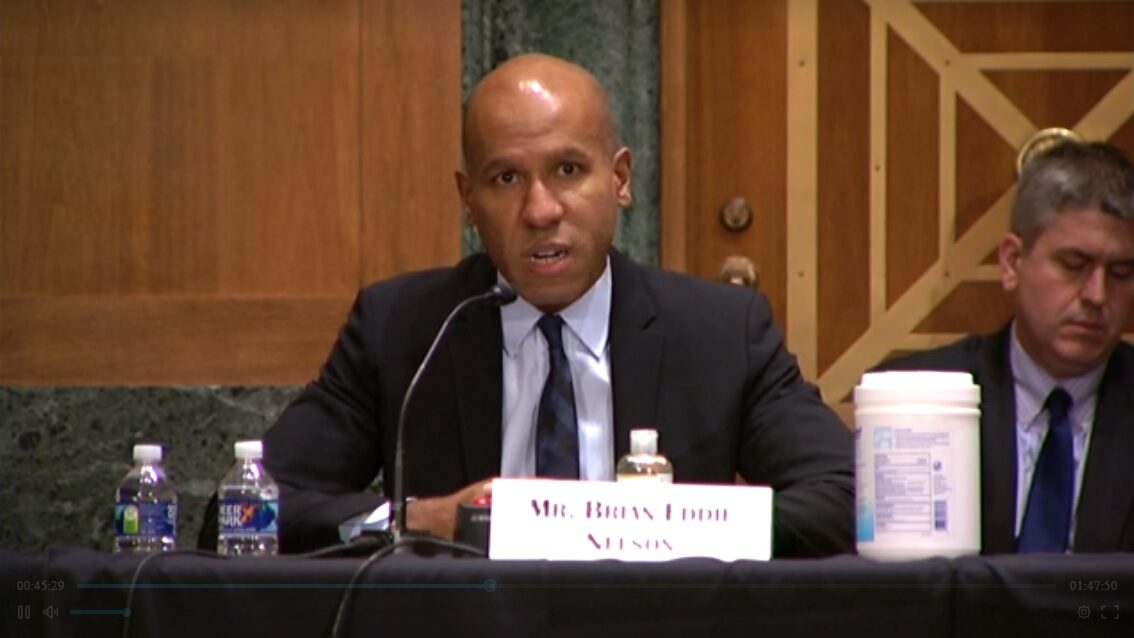What Is the Benefit of US Sanctions?
Asharq Al-Awsat, London, September 30
The US Treasury Department’s Office of Foreign Assets Control, known as OFAC, has recently announced the imposition of fresh sanctions on Ali Karti, the secretary-general of the Islamic movement in Sudan, as well as two companies associated with the Rapid Support Forces. These sanctions are a response to the latter’s roles in undermining peace, security, and stability within Sudan. This marks the third time sanctions have been levied against entities linked to the Rapid Support Forces, with previous actions targeting Lt. Gen. Abdelrahim Hamdan Dagalo, the deputy commander of the Rapid Support Forces and the brother of Mohammed Hamdan Dagalo or “Hemedti.” The rationale behind these sanctions, as outlined in OFAC’s press statement, cites Karti’s leadership in obstructing Sudan’s path toward full democratic transformation. His actions, including undermining the civilian-led transitional government and the framework agreement process, contributed to the outbreak of hostilities between the Sudanese Armed Forces and the Rapid Support Forces on April 15, 2023. Karti, along with other Sudanese Islamists, has actively obstructed efforts to secure a cease-fire and opposes the endeavors of Sudanese civilians striving to restore democratic transformation within the country. Consequently, Karti has been designated for his role in threatening Sudan’s peace, security, and stability. The two entities targeted in these sanctions are companies affiliated with the Rapid Support Forces that generate revenues from and contribute to the ongoing conflict in Sudan. Brian E. Nelson, the Treasury Department’s undersecretary for terrorism and financial intelligence, stated, “Today’s action holds accountable those who have undercut efforts to find a peaceful, democratic solution in Sudan.” The move has prompted questions regarding the rationale, impact, and effectiveness of these sanctions, given Sudan’s history with US sanctions. Sudan has experienced US sanctions in multiple phases, with the first wave in the early 1990s due to the fundamentalist tendencies of the Turabi-Bashir regime and its association with international Islamic extremists. Subsequent sanctions were imposed following escalating conflict in Darfur, humanitarian crises, and violations against civilians. These dual sanctions, combined with UN Security Council measures, created a tight economic siege, leading to disruptions in various sectors and the cessation of Western foreign aid and foreign banking operations. Ali Karti, a prominent figure within the National Congress and the Islamic movement, held key political, economic, and security roles during the Bashir regime, including a tenure as minister of foreign affairs. He is also one of Sudan’s wealthiest businessmen. After the regime’s fall, Karti assumed leadership within the organization, emerging from hiding to engage in various political and social activities following the military coup against the civilian government in October 2021. American sanctions on Karti align with indications of his strong ties to Gen. al-Burhan and his leadership in advocating for war continuation while opposing negotiation efforts. The pivotal question for many observers is whether these sanctions carry a significant impact on Sudan’s political landscape, considering their influence appears more political than economic. Karti’s economic and commercial interests are unlikely to be substantially affected by these sanctions, given his limited affiliations with American banks and economic entities. However, the underlying political message of the sanctions is of paramount importance. The American stance supports the notion that the Islamic movement played a role in poisoning the transitional period atmosphere, paving the way for conflict and subsequently endorsing a war continuation stance. It has obstructed negotiations aimed at peaceful resolutions. If the Jeddah Economic Forum negotiations are underway, this message serves as a clear warning to any party potentially hindering negotiations or pressuring the government to abstain from participation. It may even signal a call for the government to dissolve its alliance with the Karti group before the sanctions are extended to all involved parties. —Faisal Mohamed Saleh (translated by Asaf Zilberfarb)

